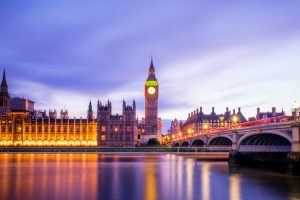The SNP’s hope is that Brexit can swing public opinion towards independence. Scottish politics since the 2014 referendum can be defined as a stalemate over the central constitutional question, but the SNP is hoping that Brexit can break this pattern.
For those living and working south of the border, it is easy to forget the extent to which Scottish politics is linked to the independence question. The SNP, despite having spent 11 years in power, poll at an impressive 43 per cent, just shy of the 44 per cent who voted for independence in 2014. Meanwhile, unionist votes are shared primarily between Labour and the Conservatives. When it comes to a second independence referendum, polls point towards a very similar result to 2014. A narrow, but comfortable vote to remain in the UK. All these figures have been largely consistent since the 2014 independence referendum.
The vote for Brexit and subsequent negotiations has so far not provided the pro-independence swing expected by some commentators. Soon after the Brexit referendum, First Minister Nicola Sturgeon became increasingly vocal about the need for a second independence referendum. This was underpinned by the logic that Scottish voters, who voted 62 per cent to Remain, would resent being dragged out of the EU and Single Market against their will. Instead, support for independence has remained at a stable level: 44 per cent of Scots currently support independence, exactly the same proportion who voted ‘Yes’ in 2014. [1]
This had led to greater caution from Sturgeon. She does not want to lead the SNP into a doomed campaign, against the wishes of more radical elements of the nationalist movement who see the pretext of Brexit as the best chances of success.
At the same time Sturgeon is not agitating for a second EU referendum. Conscious of the 36 per cent of SNP voters who also voted for Brexit [2], she is not willing to alienate supporters ahead of the Scottish Parliament elections by actively pressing for a re-run of the EU vote. Although she has said that SNP MPs would vote for a second referendum if given the chance, that is very different to actively campaigning to make such a vote happen.
Sturgeon may also be making the private calculation, as others have openly, that a bad Brexit would be good for the independence movement. Should Scotland feel the effects of no deal or a poor deal, the theory is that the independence movement would pick up voters who once saw the UK as a secure place for Scotland and its economy. Sunday Times polling has shown that a no-deal Brexit would shift public opinion towards independence, with 48 per cent of Scots saying they would back independence in that scenario. Of course, the converse may prove true. The lived experience of a no deal Brexit may warn voters against another constitutional upheaval.
Rather than immediately commit to one course of action the SNP plan is to wait. As one commentator recently observed, ‘Scottish political opinion is a story of continuity rather than change.’ The SNP and its leader hope that Brexit will disrupt that.
[1] 7 October 2018, The Times, link
[2] Scottish Herald, 7 December 2016, link



